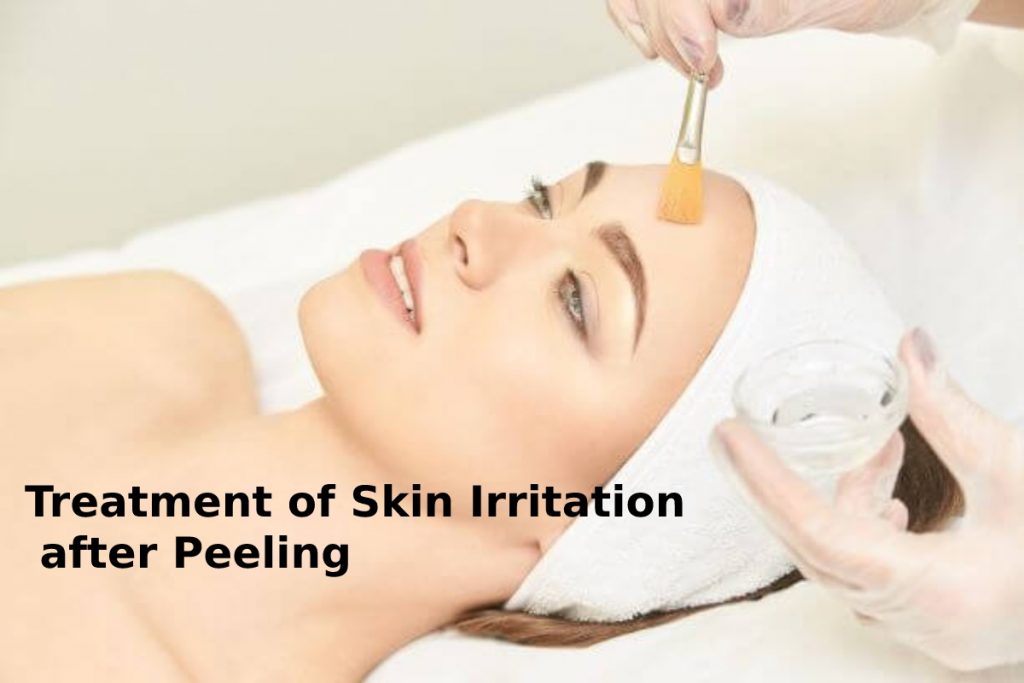Table of Contents
Introduction
Have you done exfoliation lately and are experiencing skin aggravation? Do you know how to treat skin irritation after exfoliation? Learn with us in this article about the treatment of skin aggravation after peeling.
Exfoliation is used as a treatment to improve skin appearance but can sometimes irritate the skin, so you need to treat skin irritation after exfoliation. Read more with us between the following lines on the treatment of skin irritation after exfoliation:
Skin irritation after exfoliation is widespread, especially in sensitive skin owners, and can last 2-5 days after peeling, and the skin becomes more sensitive to sunlight. Therefore, peeling remains remain usually used to remove damaged skin cells and reveal healthy, fresher and brighter skin.
Skin irritation can be treated after peeling as follows:
1. use ice
putting ice immediately on the skin helps reduce skin irritation, as cold compresses and ice help treat skin irritation after peeling.
2. steroid use
Topical steroid development, such as Hydrocortisone and Fluticasone, helps treat skin irritation after peeling.
3. calamine lotion
local calamine lotion is very useful in treating skin irritation, as it soothes the skin and remains used topically.
4. refreshments and sunscreens
a person should use daily skin moisturizers to reduce skin irritation and use protective ointments, such as vaseline.
The use of sunscreen is also significant in treating skin aggravation after exfoliation.
5. taking analgesics
Analgesic medications can be used to relieve pain, such as ibuprofen and Naproxen.
Tips For Preventing Skin Irritation After Peeling
proper skincare after peeling is a significant factor, helping to speed up the healing process, maintaining longer results, and preventing infection and other benefits.
tips to help maintain skin after peeling include:
always clean the skin
Skin cleansing should always remain maintained through the use of water and special lotion recommended by your doctor after peeling.
changing the bandage
your doctor may need to place the application after a medium or deep peel, a type of peel performed in doctors’ clinics, so you should commit to changing the bandage and permanently placing the ointment.
moisturizing the skin
skin hydration should be maintained daily with medical moisturizers to prevent scar tissue from appearing.
avoid sun exposure
you remain exposed to sunlight throughout the recovery period after peeling, and you should use sunscreen daily for fear of sun damage.
tretinoin cream mode
Your doctor may recommend tretinoin cream every night when you start using it after 2-3 weeks after peeling.
Note that it should only remain used under the supervision of a doctor.
do not use tanning beds
do not use internal or external tanning beds during the healing process after peeling.
Is peeling suitable for all skin types?
Exfoliation is suitable for almost all skin types, but some people with dark skin may be at risk of hyperpigmentation syndrome, which makes the skin darker than it used to be.
some people may not remain peeled for some reasons, including:
a prior history of abnormal skin scarring.
Skin diseases.
Use medications that increase skin sensitivity.
Inability to stay away from the sun throughout the healing period.
Also Read: Foods you Never Put in the Fridge
